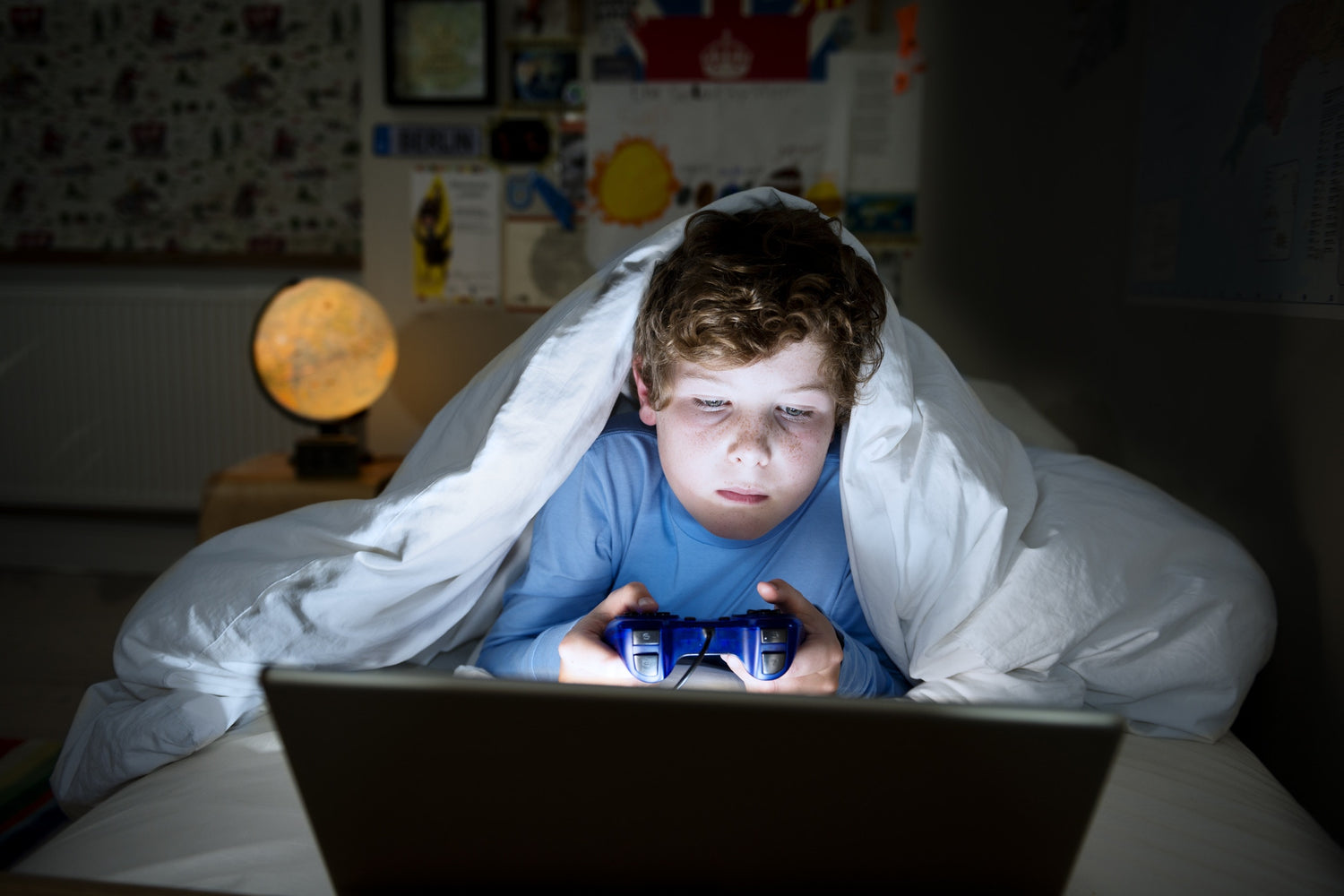“He's developed eye and neck tics,” I told the doctor.
After discussing the issue in more depth, the pediatrician decided the tics (defined as a habitual spasmodic contraction of the muscles, most often in the face) were caused by playing video games.
“Really? Video game play can cause physical tics?” I asked. I was shocked.
The doctor explained that video games cause over-stimulation of the brain. When my son isn’t playing video games, his brain craves this stimulation, which can cause the tics and other problems. The doctor recommended no video game or electronic use for three weeks to see if it made a difference.
I was nervous about how my son would respond, but I think because the doctor recommended it, he didn’t object. During the three weeks without video games, I noticed a decline in the tics but I also became aware of other issues. I didn’t realize how little he was interacting with family or friends until he no longer was involved with electronics. Instead of isolating himself, he was now socializing with others. Additionally, he was less irritable and seemed happier.
After this experience, I researched the negative effects of video game and electronic use. Dr. Dunckley wrote the book, “Reset Your Child’s Brain,” regarding these issues. In her book, she defines electronic screen syndrome (ESS) as a syndrome in which a child experiences symptoms of hyperarousal that can cause impairment in some aspect of their life. These behaviors can mimic other disorders such as tics, ADHD, or bipolar disorder.
It's important to note that it's not the amount of time a child uses the devices or the type of video games played; rather it's how the child responds to using the electronics. Every child is different and can be affected differently from video game play. In my son's case, he's not allowed to play violent video games and yet he still displayed symptoms of ESS.
Dr. Dunkley identifies the following six negative effects of playing video games:
Overstimulation of the sensory system
When a child plays video games, overstimulating messages are sent to the nervous system due to the bright colors and quick movements. This triggers the body's flight or fight response, creating a hyperarousal state. When the child isn’t playing video games, the brain experiences a sensory deprivation that can lead to irritability. It can also cause some children to experience seizures, tics, and migraines.
Research by Rowan found repeated, intense over-simulation of the brain can cause a child to pay attention to everything, which in turn makes it difficult to focus on one single activity. While the child is using technology, the tactile systems are under-stimulated and the visual and auditory sensory systems are over-stimulated. This creates an imbalance and can lead to neurological development issues.
Psychologically addictive
The brain chemical dopamine is released when a child plays video games. The more a child likes a game, the more dopamine is released, which makes the child want to continue playing. A study conducted at Iowa State University found one in ten gamers could be defined as pathological players using standards for pathological gambling (the general population uses the word addiction). Research by Sun et al. used MRIs and found when gamers play, their brains illuminate in the same manner as someone who is addicted to drugs.
Sleep disturbances
The artificial blue light emitted from electronic screens causes the brain to suppress the hormone melatonin, which your body needs to sleep. A study conducted at Harvard University found exposure to blue light suppressed melatonin twice as long as green light and shifted circadian rhythms by twice as much (three hours versus one and a half hours). Research by the American Academy of Sleep Medicine found gamers who played for seven hours or more experienced both poorer and less sleep than non-gamers.
School-age children and teens should sleep for nine to 10 hours each night. Sleep disruptions or lacking the proper amount of sleep increases the risk of obesity, heart disease, stroke, and diabetes. Receiving the proper amount of sleep promotes appropriate growth and development, improves social interactions, and increases immunity against diseases.
Impaired social interactions
Playing video games tends to be an isolating activity. When a child is playing video games, they're missing out on interacting socially with both friends and family. These social interactions are important in developing social skills and relationships. Research by Kraut et al. found increased use of technology led to a decline in social interactions and an increase in depression.
Poor sense of time
Video game play has been linked to time distortion in players. Rau et al. found gamers have difficulty gauging how much time they've actually spent playing and they often require outside intervention to stop playing. A poor sense of time perception also creates issues with time management that could cause the child to be habitually late.
Mood dysregulation
Lack of sleep combined with an overstimulated sensory system can lead to irritability, mood swings, and aggression. Dr. Dunckley became interested in the negative effects of electronic use when she was working with children diagnosed with mental health issues. Then a colleague asked for help with her own son. The child had seen several psychiatrists and was first diagnosed with ADHD, then autism, and finally bipolar disorder. Dr. Dunckley recommended removing all electronics for three weeks. After the electronic fast, the child’s behavior improved significantly and he could be weaned off all medications. This example demonstrates how ESS can mimic mood disorders such as bipolar disorder.
Should a child with ESS play video games?
Dr. Dunckley recommends limiting the amount of exposure to electronics. Our doctor suggested one hour per day on the weekends only. Before I researched this topic, I didn’t know about the negative effects of video game use or how it could affect children differently. I thought it was comparable to watching television. Now that I’m informed, we've adhered to the doctor’s advice and my son no longer experiences tics. More importantly, he is socializing more with family and friends.



